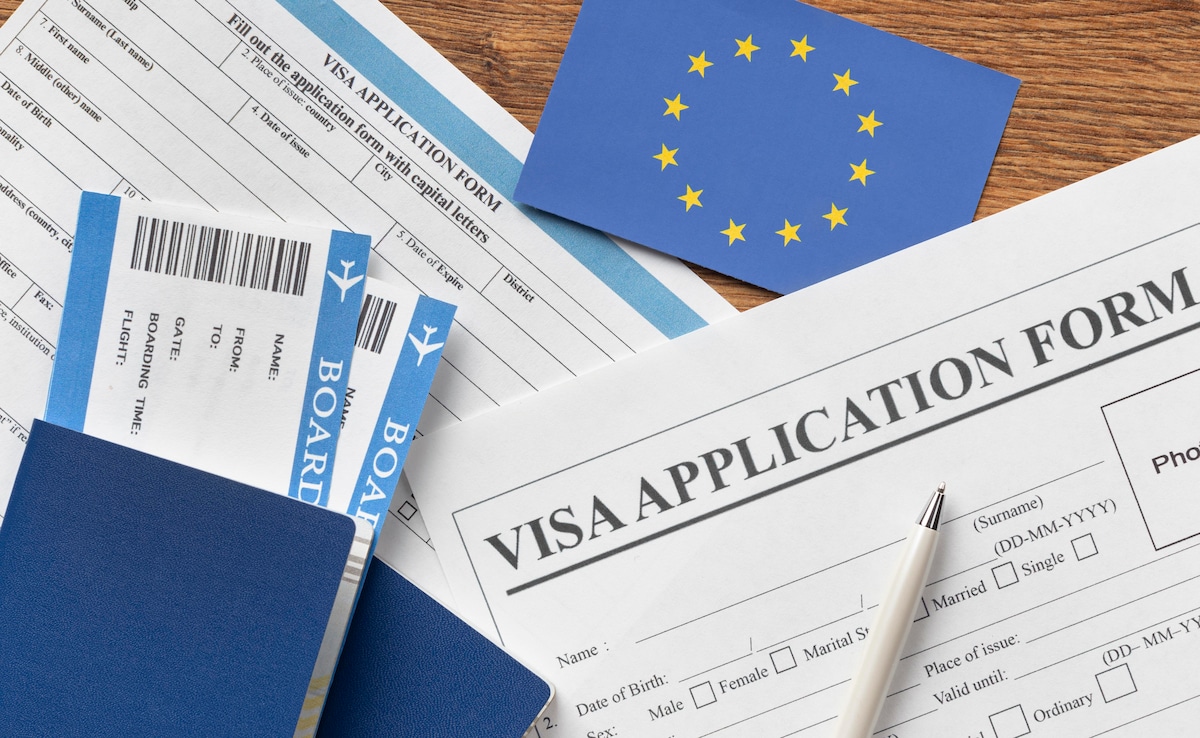
- An Indian professional faced two successive Schengen visa rejections for a business trip to France
- Reasons cited included doubts about travel purpose and intention to leave Schengen states
- Prior refusals may be recorded in Schengen vetting databases affecting future applications
A Reddit post about an Indian professional's Schengen visa rejection is receiving a lot of interest online. The person claims that they applied for a short-stay visa to the Schengen Area, intending to attend a business conference, and found themselves with two rejections in succession. This incident raises important lessons for other travellers: what goes wrong in a visa application, how past refusals can colour future ones, and how to strengthen your case if you're planning to secure a Schengen visa from India.
Also Read: Delhi Man Allegedly Told To "See His Country First" When US Visa Was Rejected
The individual in question had applied for a visa to France to attend a business conference. Their first attempt faltered, allegedly because of the mishandling of document submissions by an agency. On the second try, the applicant stated that they applied independently, corrected earlier issues and cleaned up their file. However, they still faced rejection. According to the Reddit post, the reasons cited by the consulate were: "Purpose and intention of stay and visa felt unreliable. Reasonable doubts on whether I'll leave the member states even after the visa expires." These reflect particular Schengen visa rules according to which authorities assess not only the paperwork, but also the credibility of the applicant's travel plan and ties to their home country.
The applicant said that they are also thinking about appealing the decision to protect their future application chances. Once a refusal is recorded, it may be shared across Schengen-Area vetting databases, which could affect later visa attempts. Take a look at the post below:
French Schengen Visa - Rejected Twice : Appealing so applications after a year or two shouldn't get affected by this.
byu/kuri_bro inSchengenVisa
What The Schengen Visa Rules Say
Under the rules for short-stay (90-day) Schengen visas, issuers are required to verify several things: the purpose and duration of the stay, the existence of sufficient means (travel, accommodation, funds), and whether the applicant will leave the territory at the end of their authorised stay. A refusal may result if they harbour "reasonable doubts" about one or more of these criteria.
In practical terms, this means: even if your documents are in order, the consulate must be able to believe your story: that you're travelling for the stated reason, will abide by the rules, and will return home. Documentation alone doesn't guarantee success if the story doesn't convince.
Also Read: Man's US Tourist Visa Rejection Goes Viral, Sparks Debate On Relatives In America
Why Indian Applicants Often Face Particular Scrutiny

While Schengen visa refusals happen globally, applicants from India often face heightened scrutiny. Here are some of the reasons why:
- Strong economic migration pressures globally mean visa issuers may probe more deeply whether a traveller intends to return home rather than overstay.
- Applicants with little or no previous travel history may find their credibility questioned.
- Document inconsistencies may raise questions. In this case, the first application was submitted via an agency and reportedly lacked complete documentation, possibly contributing to doubts.
- Most consulates will ask about past refusals and may treat them as warning signs.
- Thus, for Indian professionals planning short-stay travel to the Schengen area, the bar is often higher in the sense of "showing up convincingly".
How To Avoid Schengen Visa Rejection
If you're planning to travel to the Schengen zone (or any visa-controlled destination) from India, here are key takeaways:
- Be concrete about your travel purpose: Whether it's business, leisure, conference or family visit, your documents should clearly support it (invitation letter, professional credentials, itinerary, proof of accommodation, insurance).
- Demonstrate strong ties to India: Consulates want to see reasons you will return: stable employment, business, property, family, and ongoing commitments. Make sure these are clearly laid out.
- Clean record counts: If you've had a visa refusal before, you should attach a cover note explaining what changed this time and how you've addressed the prior refusal's cause.
- Avoid ambiguity: Mixed travel purposes, weak itineraries, inconsistent employment information, or agents handling everything without your engagement may cause problems.
- Keep full, transparent documentation ready: Don't rely on "justification". Provide more than minimal proof. For instance, for a business trip: conference agenda, employer approval letter, and post-travel return plan.
- If you do get a refusal, understand the reasons: Many Schengen refusals cite standard legal grounds (e.g., "Insufficient proof" or "Doubts about the intention of stay"). Use that as a learning point for future applications.
Tips For Reapplying For A Schengen Visa After Rejection
You can reapply after a refusal. A prior rejection does not automatically disqualify you, but it does raise the bar: you must overcome the doubts flagged previously. Here are some tips to keep in mind:
- Wait until you have a new, strong purpose for travel, like another business event, conference, or family visit backed by credible documentation.
- Prepare a detailed cover letter explaining your previous refusal, what has changed, and why this time the case is stronger.
- Ensure all documentation is in order: employer letter, invitation/registration for the event, travel itinerary, hotel bookings, travel insurance, sufficient funds, proof of stay in India, etc.
- Consider applying sufficiently ahead of your travel date to give yourself time in case you need to reapply.
- Be honest and consistent: choose a travel purpose you can justify fully, and one aligned with your profile.
Travelling to Europe remains a dream for many Indian professionals. For those planning their next trip: prepare early, be transparent, and don't assume that once-good credentials automatically ensure approval.
Track Latest News Live on NDTV.com and get news updates from India and around the world

